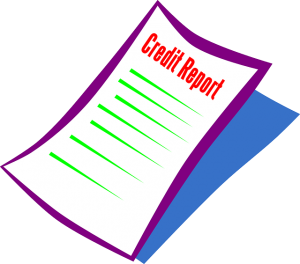 What comes to mind when you hear about the importance of good credit or knowing what your score is? Having a high score will help your day-to-day life such as renting an apartment or purchasing a cell phone. There are several resources to assist you in knowing your credit score.
What comes to mind when you hear about the importance of good credit or knowing what your score is? Having a high score will help your day-to-day life such as renting an apartment or purchasing a cell phone. There are several resources to assist you in knowing your credit score.
Know Your Credit Score
The first step to knowing your score is learning how to check your credit report for free. Checking your report is important to ensure that all the information is accurate. Everyone is guaranteed the right, by law, to view their credit report from each of the three large reporting agencies for free. The reporting agencies include TransUnion, Experian, and Equifax. Each agency will provide one free report every 12 months.
 Three ways to request your report:
Three ways to request your report:
- Online at AnnualCreditReport.com—this is a secure website, and it is safe to use and it is the only source that is authorized to provide free, annual credit reports.
- Calling: 877-322-8228
- Submit a request by mail
What to look for on your report
Check each part of your credit report to see if all items are correct and up to date.
- Personal Information – Is your name listed in more than one way? Did you live at all of the addresses listed?
- Accounts – Do all of the accounts belong to you? Have your accounts been paid on time? How many have late payments and how late were they? Did any accounts go to collections?
- Credit Inquiries – How many times did you apply for credit in the past two years?
- Public Records – Are there any bankruptcies, foreclosures, wage garnishments or attachments, liens or judgments on your report?
- Consumer Statement – If you have placed a fraud alert on your report, it will be listed here. If you disagree with an item that is on your report, you can add a statement) saying why you dispute it.
Time Limits
After reviewing your report, you can dispute anything that is wrong or out of date. Therefore, it’s important to know that not all items on your report have the same time limits.
| Item | Time Limit |
| Late payments or collections | 7 years from the date the account became overdue |
| Defaulted loans | Depending on the loan type, 7 years or until your loan is paid off |
| Bankruptcies | Depending on the type of bankruptcy, 7 – 10 years from date of filing |
| Judgments | 7 years, whether you paid it or not |
| Tax liens | 7 years after it is paid; 15 years if it’s not paid |
| Positive account information | No time limit, but often removed after 10 years |
| Inquiries | 2 years, soft inquiries often removed after 1 year |
How Is Your Score Calculated
Several factors determine a credit score and it can change frequently. Each scoring category may be weighted differently depending on your history. They are typically calculated using the FICO® scoring system. The following categories and percentages are a general idea of how your factors may influence your score.
- Payment History – 35%
- Amounts Owed – 30%
- Length of Credit History – 15%
- New Credit – 10%
- Type of Credit Used – 10%
In conclusion, your credit report is reflected in your credit score. This score helps determine if someone is willing to loan you money and how much interest they will charge. If you regularly pay bills on time, pay down debt and make sure the information in your report is correct, a good credit score will follow.
 Check out https://www.facebook.com/moneysmartcolorado for Colorado State University Extension Agents bringing financial education, programs and discussions to Coloradoans everywhere. For more information on personal finances check out Colorado State University Extension’s publications at https://extension.colostate.edu/topic-areas/family-home-consumer/.
Check out https://www.facebook.com/moneysmartcolorado for Colorado State University Extension Agents bringing financial education, programs and discussions to Coloradoans everywhere. For more information on personal finances check out Colorado State University Extension’s publications at https://extension.colostate.edu/topic-areas/family-home-consumer/.

